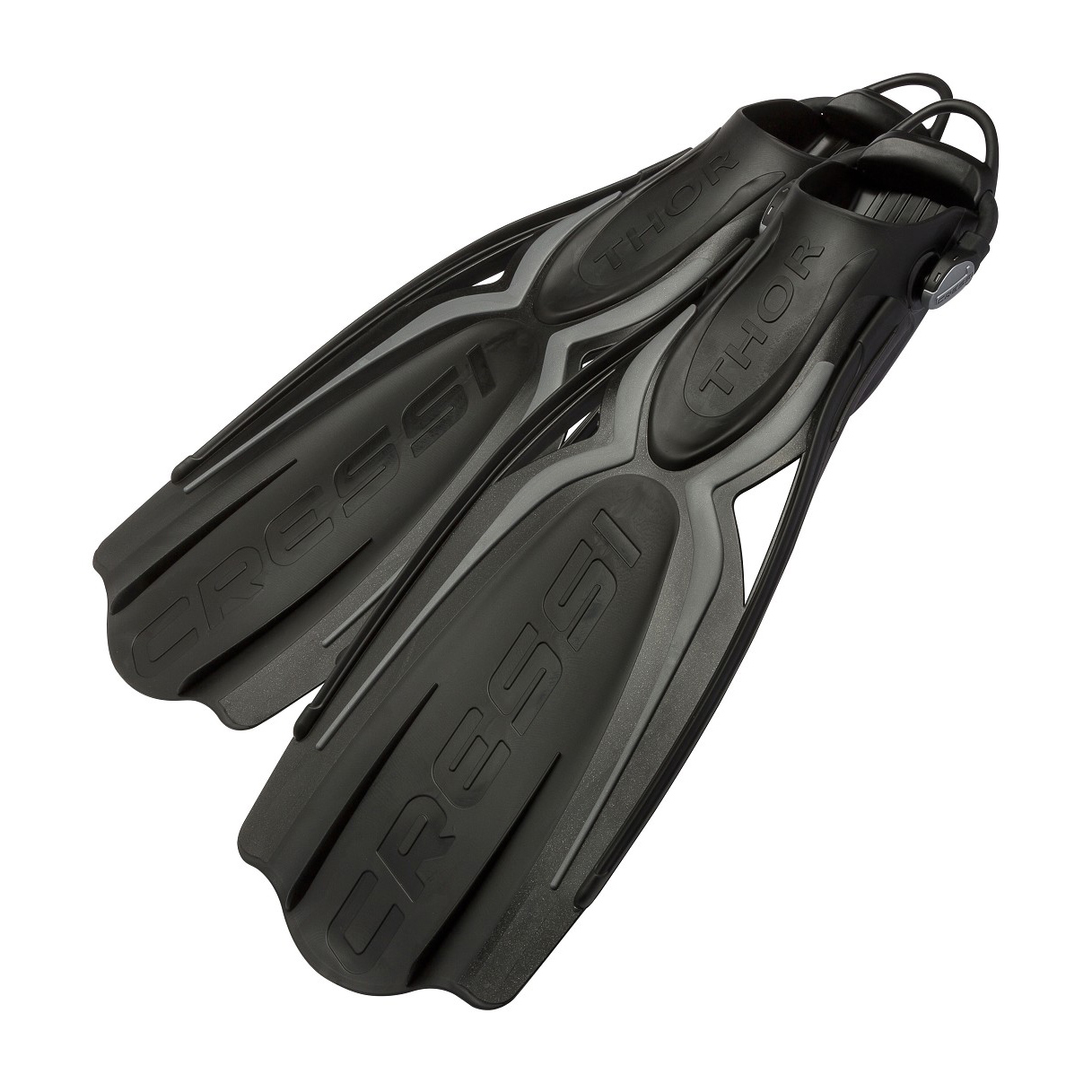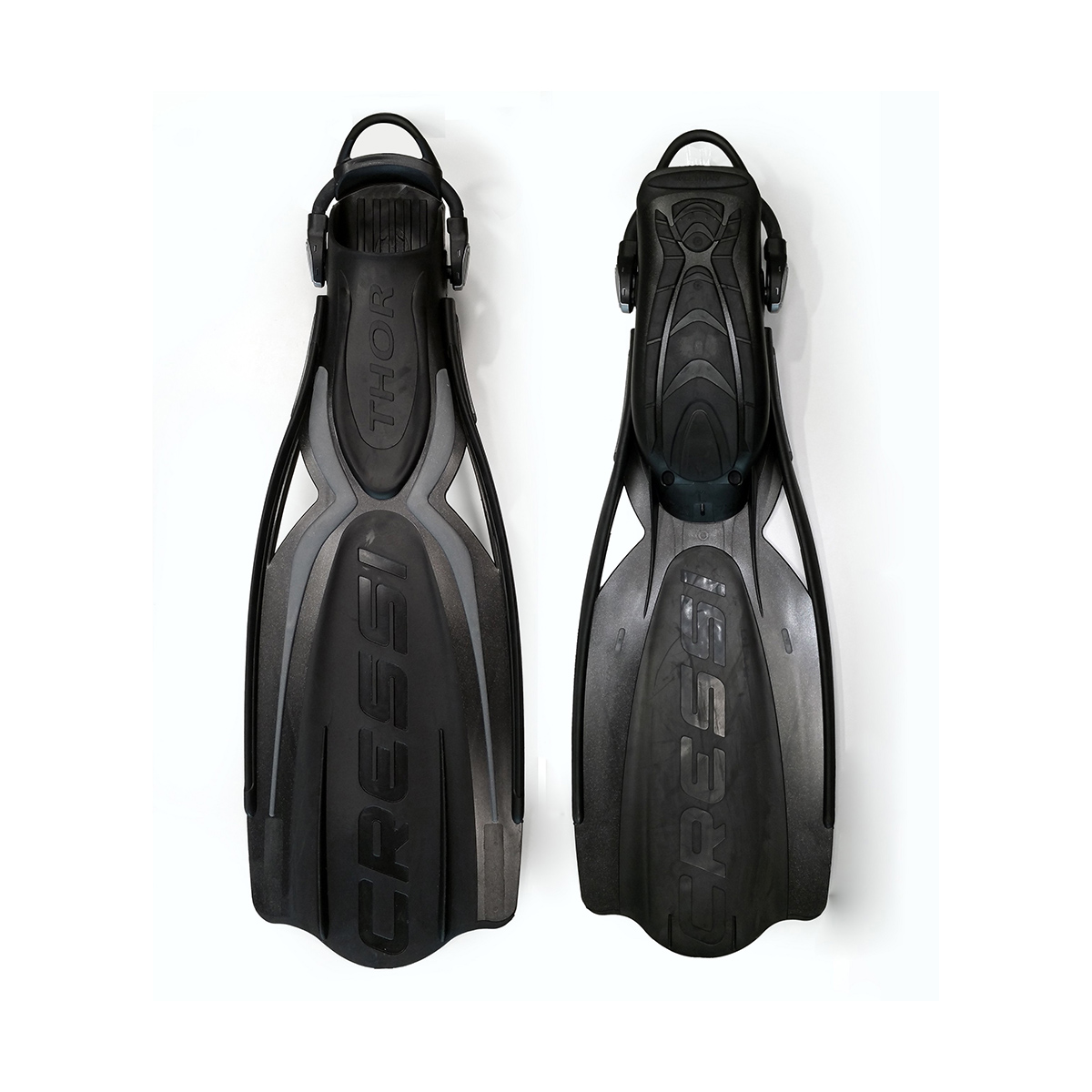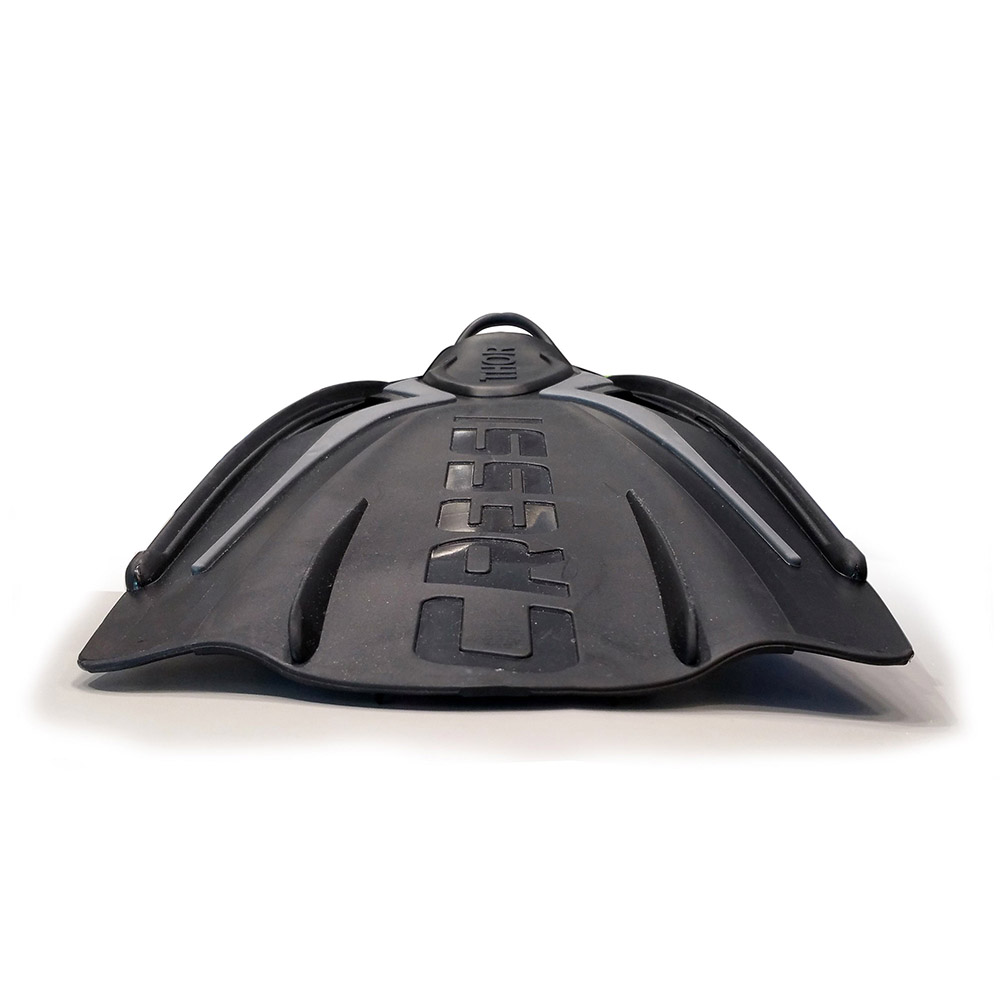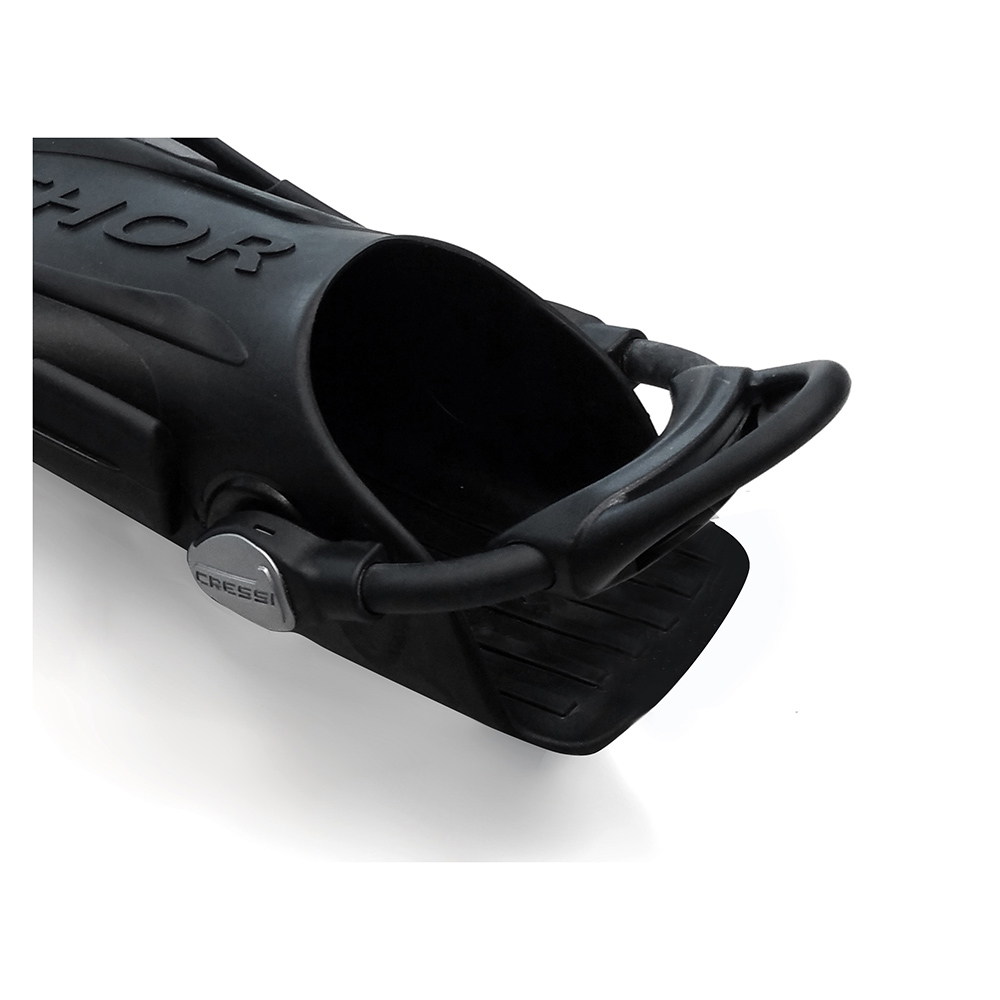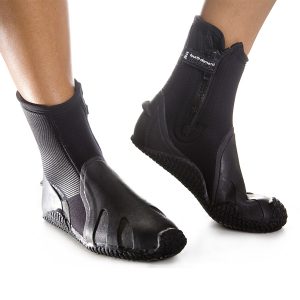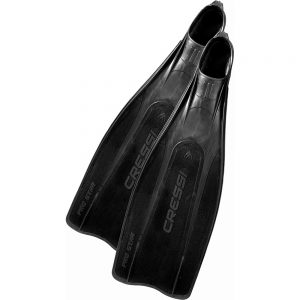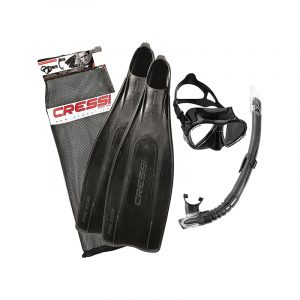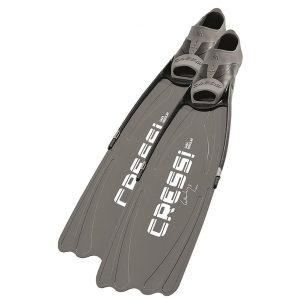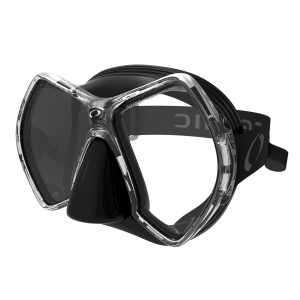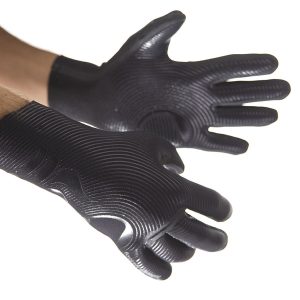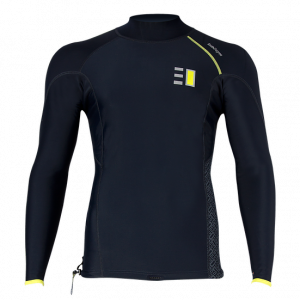The new THOR EBS fin has a peculiar and unprecedented structure that combines the two central ribs in high modulus polypropylene, very reactive and a central area of the thermoplastic rubber with a convex section, assembled in a polypropylene blade. Two lateral nozzles located in the area where bending starts release the associated negative forces and allow the use of two high response ribs. This combination causes a channeling and acceleration of water flow, which stabilizes and increases propulsion at equal effort.
The inclination of the blade with respect to the foot pocket has increased by 5% compared to traditional diving models. This angulation provides greater efficiency and a more natural foot position during flapping.
Thor enjoys an exclusive system of injection of 3 materials patented by Cressi, which offers a combination of strength, power, comfort and aesthetics and the optimization of the requirements of each area of the fin.
Main body of polypropylene: This material, inherited from apnea fins, has as main characteristic the rapid transmission of the applied energy and its great structural rigidity. It is applied to the shovel and inner area of the sole sandwich. He is very nervous and reactive and facilitates a very agile and effective flutter. It has a stress-performance ratio clearly superior to traditional materials (natural rubber or thermoplastic, polyurethane, EVA). Also, it has a great resistance to breakage to the point that Cressi guarantees its life for sporting use:
Flexible elastomer: It is applied to the foot pocket and the areas that require flexibility and elasticity, since they influence the comfort of the diver: Footrest toe, interior of the sole and area of the instep in contact with the ankle. It is also assigned to the areas that require non-slip capacity: Inserts in the sole (area in contact with the ground) and anti-shock, such as the lateral nerves of the blade. The fusion of both materials is performed at the molecular level and its strength is guaranteed for life for sports use.
Polypropylene of the high module: Especially reactive, it is applied to the nerves of the blade and is responsible for providing rigidity and return to the blade. This material connects the critical point of transmission of energy (the instep) with the nerves in one piece, avoiding the usual loss of energy through excessively flexible components of the foot pocket that produce a heavy, slow and fatigue fluttering the instep.
It also uses several technologies common to the rest of the Cressi models.
“Shoe design under the blade”: Now increasing its angle by 5%, the blade comes directly from the top of the foot pocket, solidly joining the fin to the foot and transmitting all the effort generated by flapping without loss of energy through soft areas. This format allows the water to be channeled from the same ankle to the final edge of the blade, unlike traditional models, in which the foot pocket has no contribution to the advance. Apart from improving the directionality of the flutter, this design provides a performance between 10% and 15% higher than what would correspond to the fin for its blade surface.
Thickness of the blade of decreasing profile “spina di pesce” to improve the directionality of the flutter and achieve a greater inertia of the final part of the fin.
Foot Pocket reinforced in the upper area by a supplementary thickness and laterally by two prolongations of polypropylene from the upper to avoid the dispersion of energy in the process of transmission from the foot to the blade.
FOOT POCKET with three differentiated volumes, with the central area narrowed so that the foot remains firmly fixed inside and the transmission of the foot-paddle effort is direct and precise.

